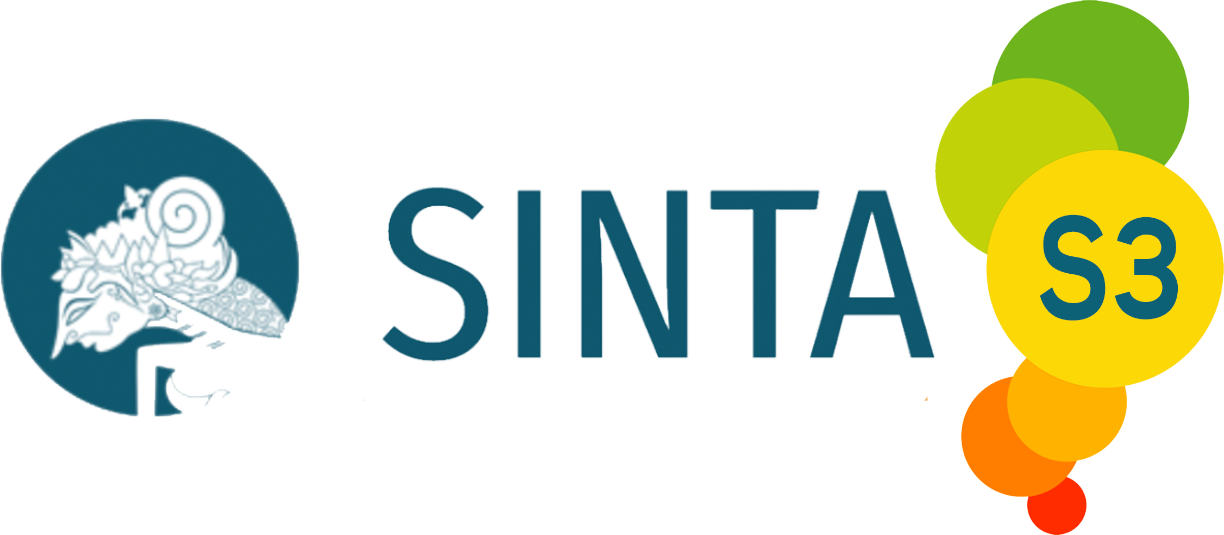The internalization of Pappaseng's value in social studies learning
Anwar Anwar, Institut Agama Islam Negeri Parepare, Indonesia
Nurleli Ramli, Institut Agama Islam Negeri Parepare, Indonesia
Hamdanah Said, Institut Agama Islam Negeri Parepare, Indonesia
Hasmia Herawaty, Institut Agama Islam Negeri Parepare, Indonesia
Abstract
Pappaseng is a local value of the Bugis-Makassar community that contains values about life that encompass moral and ethical values that are expected to shape students' character amid the current globalization. The study aims to describe the procedure of internalization of Pappaseng values in IPS learning as an attempt to cultivate the student's character. Qualitative research methods with the type of field research are used to answer research problems. Data was collected through direct classroom observation, interviews with teachers and students, and identifying teacher learning tools. The results showed that there were several Papapseng values in the learning process, namely akkeagamang (religious) value, lempu (honest) value, warani (brave) value, siri (self-esteem) value, sipakatau (appreciate) value, and getteng (tight) value. The planting of its values in learning is inseparable from supporting and inhibiting factors. Teachers carry out the internalization of its values in social studies learning by modifying and improvising social studies teaching methods and materials that are relevant to Pappaseng spontaneously without being stated in the learning tool or lesson plan.
Keywords
Full Text:
PDFReferences
Afriyanti, M. (2021). Implementasi Pendidikan Karakter Melalui Ekstrakurikuler Kearifan Budaya Lokal Di Madrasah Ibtidaiyah Muhajirin Kota Jambi.
Anshori, S. (2016). Kontribusi ilmu pengetahuan sosial dalam pendidikan karakter. Edueksos Jurnal Pendidikan Sosial & Ekonomi, 3(2).
Anwar, K. (2021). Manajemen Pendidikan Karakter Berbasis Kearifan Lokal Pada Sekolah Menengah Pertama Negeri Kota Banjarmasin. Menejemen Pendidikan, 01(01).
Budiarto, G. (2020). Indonesia dalam Pusaran Globalisasi dan Pengaruhnya Terhadap Krisis Moral dan Karakter. Pamator Journal, 13(1), 50–56. https://doi.org/10.21107/pamator.v13i1.6912
Darmalaksana, W. (2020). Metode Penelitian Kualitatif Studi Pustaka dan Studi Lapangan. Pre-Print Digital Library UIN Sunan Gunung Djati Bandung.
Handayani, D., & Sunarso, S. (2020). Eksistensi budaya pappaseng sebagai sarana pendidikan moral. Mudra Jurnal Seni Budaya, 35(2), 232–241.
Hasriani, Sartika, E., & Ratnawati. (2020). Nilai Sosial Budaya Berbasis Karakter Dalam Pappaseng Turiolo Makassar: Kajian Sosiologi Sastra. Bahasa Dan Sastra Indonesia, 1(2), 115–121.
Iswatiningsih, D. (2019). Penguatan Pendidikan Karakter Berbasis Nilai-Nilai Kearifan Lokal di Sekolah. Satwika: Kajian Ilmu Budaya Dan Perubahan Sosial, 3(2), 155–164.
Lesilolo, H. J. (2018). Penerapan Teori Sosial Albert Bandura Dalam Proses Belajar Mengajar Di Sekolah. Kenosis, 4(2), 186–202.
Made, N., Sari, W., Ganesha, U. P., & Native, G. D. (2021). Pendidikan karakter untuk generasi digital native. Jurnal Pendidikan Kewarganegaraan Undiksha, 9(2), 518–524.
Mamangan, J. I. S. (2021). Local Wisdom-Based Character Building Through Social Science Learning in Elementary Schools. Journal, Volume, 10(1), 54–59.
Muchsini, B., & Siswandari. (2020). Class culture and the academic stress of digital natives generations. Cakrawala Pendidikan, 39(1). https://doi.org/10.21831/cp.v39i1.26910
Nahak, H. M. I. (2019). Upaya melestarikan budaya indonesia di era globalisasi. Jurnal Sosiologi Nusantara, 5(1), 65–76.
Nashihin, H. (2019). Konstruksi Budaya Sekolah Sebagai Wadah Internalisasi Nilai Karakter. At-Tajdid: Jurnal Ilmu Tarbiyah, 8(1), 131–149.
Parwati, N. N., Tegeh, I. M., & Mariawan, I. M. (2018). Integrating the values of local wisdom into the learning model: building positive student character. Educational Technology to Improve Quality and Access on a Global Scale: Papers from the Educational Technology World Conference (ETWC 2016), 297–307.
Prayogi, D. S., Utaya, S., & Sumarmi, S. (2019). Internalisasi Kearifan Lokal Dalam Pembelajaran melalui Pengembangan Multimedia Interaktif Muatan Pembelajaran IPS. Jurnal Pendidikan: Teori, Penelitian, Dan Pengembangan, 4(11), 1457–1463.
Priyambodo, P., Firdaus, & Jawardana, H. B. A. (2022). Implementasi Teori Kognitif Sosial Bandura Sebagai Upaya Pengembangan Fungsi dan peran sekolah. Kajian Pendidikan Sains, 8(1).
Purwono, F. H., Ulya, A. U., Purnasari, N., & Juniatmoko, R. (2019). Metodologi Penelitian (Kuantitatif, Kualitatif dan Mix Method). GUEPEDIA.
Ramdani, E. (2018). Model Pembelajaran Kontekstual Berbasis Kearifan Lokal Sebagai Penguatan Pendidikan Karakter. Pendidikan Ilmu-Ilmu Sosial, 10(1), 1–10.
Ramli, N. (2022). Podcast Kearifan Lokal sebagai Media Penguatan Karakter Mahasiswa Prodi Tadris IPS IAIN Parepare. Jurnal Pendidikan Ilmu Pengetahuan Sosial, 8(2), 126–135.
Saputra, D. G. (2017). Pemahaman Nilai-Nilai Pappaseng Dalam Meningkatkan Karakter Bangsa Yang Berkearifan Lokal. Risenologi KPM UNJ, 2(1), 46–55.
Sholihah, M., & Amaliyah, N. (2022). Peran Guru dalam Menerapkan Metode Diskusi Kelompok Untuk Meningkatkan Berpikir Kritis Siswa Kelas V Sekolah Dasar. Cakrawala Pandas, 8(3).
Suhartini, S., Sekarningrum, B., Sulaeman, M., & Gunawan, W. (2019). Social construction of student behaviour through character education based on local wisdom. Journal of Social Studies Education Research, 10(3), 276–291.
Suherman, A. (2018). Jabar Masagi: Penguatan Karakter Bagi Generasi Milenial Berbasis Kearifan Lokal. Lokabasa, 9(2), 107–113.
Susilawati, E., Sarifudin, S., & Muslim, S. (2021). Internalisasi Nilai Pancasila Dalam Pembelajaran Melalui Penerapan Profil Pelajar Pancasila Berbantuan Platform Merdeka Mengajar. Jurnal Teknodik, 155–167.
Teng, M. B. A., Saleh, F., & Hasyim, M. (2021). Pangadereng in Pappaseng Nenek Mallomo as A Local Historical Marker in Sidrap Regency, South Sulawesi. Review of International Geographical Education Online, 11(3), 1169–1175.
Yuliani, W. (2018). Metode penelitian deskriptif kualitatif dalam perspektif bimbingan dan konseling. Quanta, 2(2), 83–91.
DOI: https://doi.org/10.21831/jipsindo.v11i2.68480
Refbacks
- There are currently no refbacks.

This work is licensed under a Creative Commons Attribution-ShareAlike 4.0 International License.
.png)
JIPSINDO (Jurnal Pendidikan Ilmu Pengetahuan Sosial Indonesia)
ISSN: 2355-0139 (Print) | 2615-7594 (Online)
Published by: Universitas Negeri Yogyakarta
Website: https://journal.uny.ac.id/index.php/jipsindo
Email: jipsindo@uny.ac.id










